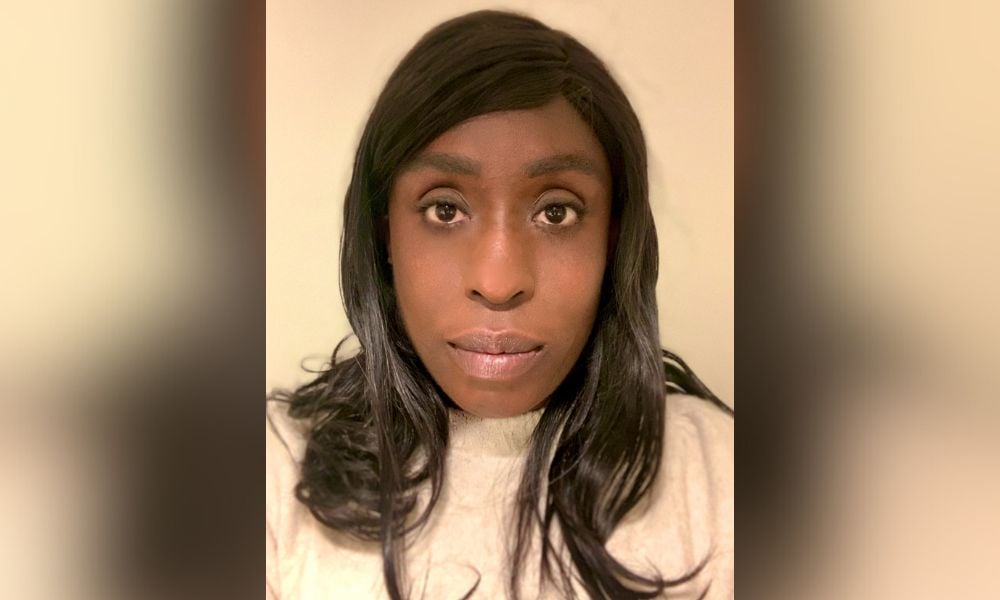
'People's everyday experience doesn't measure up to the commitment, then getting that engagement is harder'

Olivia Nuamah arrived in human resources via a circuitous route involving heavy activism and years as the Executive Director of Pride Toronto – which resulted in the first Pride Parade in the world without a police presence.
That accomplishment, along with a DEI directorship at ACTRA and a PhD in computer science, made her a prime candidate as the National Inclusion, Diversity and Belonging Leader of PwC Canada.
“In 2020, there was a real desire to want to get a little bit more authentic,” says Nuamah. “Because I'd had this track record in Toronto as having that conversation with communities and with senior decision-makers across the public and private sectors, there was a notion that perhaps I could bridge that gap a little bit more authentically. It's still the corporate world, but the desire here is to try to bring it closer to people's real experiences, as opposed to what we've been seeing.”
Nuamah was born and raised in Toronto but earned her PhD in computer science in the U.K. and spent the first years of her career in the civil service in London.
“In three years, I have done quite a lot of work here around just trying to understand what it means to create safety in a diverse workforce, looking at pay equity, looking at diversity, equity and inclusion.”
Nuamah explains that in her role focusing on “belonging”, she is given ample space to implement strategies to promote inclusion and diversity, but of course there is always the bottom line to think of, and this is where her role becomes particularly challenging.
“You are really tasked with finding that balance and finding the right approach in the context of the culture of the organization you're in,” she says.
“They get that I understand the necessity for them to be a profit-driven organization that conducts business … they do task me with the responsibility of finding the line that's the most authentic in the context of who they are as an organization. There's a lot of leeway, but at the same time, they don't expect that I would be following a path that didn't really seem right for their organization.”
Citing examples such as Glassdoor, which now includes DEI ratings for companies on its website, Nuamah explains that this need for authenticity is becoming ever more pressing as larger corporations are searching farther afield to fill their roles – as well as Canada’s workforce being increasingly comprised of landed immigrant talent.
“The more companies are able to grapple with these issues and make it a part of their policy and practice, we see not only the more successful they are, but the longer they retain employees,” Nuamah says. “The employee voice has become so strong, that in fact if you aren't addressing that, it's affecting your profits.”
Finding common ground and bridging the gap between C-suite and senior level leaders and an increasingly diverse workforce is a particular challenge of her specialized role in HR.
“If you've never engaged with those issues, it's kind of hard to understand how to navigate the sensitivities,” says Nuamah. “So ultimately, you come in and you're building their capacity, you're building their understanding and knowledge, and at the same time you're trying to move a centuries old organization into a new way of thinking and doing things, where it’s only been one note.”
The first step to bridging that gap in their own organizations and beginning to move toward more equitable workforce practices is to assess what the situation is for employees, from all viewpoints, Nuamah explains.
The only way to achieve accurate data collecting and effective DEI results is by first ensuring anonymity, then openly presenting the data to employees.
This includes using third-party agencies to conduct surveys and being explicit about anonymity – a standard which PwC practices in its own HR employee data collection once it learned employee responses to surveys are vastly different when they are anonymous.
“Let's understand what people report anonymously as opposed to what we have in our systems at the moment, and let's see what the gaps are and understand whether or not actually our employees even trust us to give us the kind of data and information that we’re looking for,” says Nuamah.
“That's the first thing I would ask most companies to do, is that the anonymization of the data collection process around employee experience is key to getting the insights necessary to act.”
Showing the data to employees and outlining how the gaps will be addressed can present uncomfortable challenges for employers to navigate, but that is where the authenticity comes in, says Nuamah.
“I'm not sure that people cared about how we were doing, they cared more that we were honest with them about how we were doing. They cared more that we were willing to reflect what we were seeing and hearing, back to them without a filter,” she says.
It all comes back to the idea of “fairness” as a main tenet of DEI, and in fact fairness is the focus of Nuamah’s next phase of DEI practice development, with the goal of making DEI more accessible for a wider scope of a workforce.
“What we are finding is leadership can make as many commitments as they like, but if people's everyday experience doesn't measure up to the commitment, then getting that engagement is harder,” says Nuamah.
“But if we can start talking about it as what is fair, as leadership in an organization they are able to better understand what is fair, and in doing that institute the policies and practices that then elevate their strategies to make sense for everybody. We're looking at understanding how to make that language much more engaging for people, so that different kinds of people can engage in this subject.”